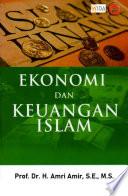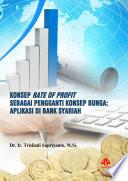The economic integration of Southeast Asia or ASEAN Economic Community (AEC) offers enormous opportunities for its members to develop and collectively collaborate with other economies. Combining the culture of the region with global business in an expanding digital atmosphere, however, has caused numerous challenges on an international scale. Due to the importance of this economic player in Asia, research on key topics including Islamic economics, Islamic finance, technology, and cultural issues in doing business are essential to understand the ASEAN competitive landscape and its relations with other countries. Economics, Business, and Islamic Finance in ASEAN Economics Community is a pivotal reference source that explores key issues and enhances understanding of business and economics in the ASEAN community and explores the collaboration between this community and Islamic finance and technology. While highlighting topics such as global business, smart manufacturing, and human resource management, this publication explores sustainable development practices as well as the methods of cultural appreciation in economics. This book is ideally designed for deans, heads of department, directors, politicians, policymakers, economists, corporate heads, senior general managers, managing directors, information technology directors and managers, libraries, academicians, researchers, and students.
-
ISBN 13 : 1799822591
-
ISBN 10 : 9781799822592
-
Judul : Economics, Business, and Islamic Finance in ASEAN Economics Community
-
Pengarang :
Ordoñez de Pablos,
Patricia,
Almunawar,
Mohammad Nabil,
Abduh,
Muhamad,
Patricia,
Almunawar,
Mohammad Nabil,
Abduh,
Muhamad,
Patricia,
Almunawar,
Mohammad Nabil,
Abduh,
Muhamad,
Patricia,
Almunawar,
Mohammad Nabil,
Abduh,
Muhamad,
Patricia,
Almunawar,
Mohammad Nabil,
Abduh,
Muhamad,
Patricia,
Almunawar,
Mohammad Nabil,
Abduh,
Muhamad,
Patricia,
Almunawar,
Mohammad Nabil,
Abduh,
Muhamad,
Patricia,
Almunawar,
Mohammad Nabil,
Abduh,
Muhamad,
Patricia,
Almunawar,
Mohammad Nabil,
Abduh,
Muhamad,
Patricia,
Almunawar,
Mohammad Nabil,
Abduh,
Muhamad,
Patricia,
Almunawar,
Mohammad Nabil,
Abduh,
Muhamad,
Patricia,
Almunawar,
Mohammad Nabil,
Abduh,
Muhamad,
Patricia,
Almunawar,
Mohammad Nabil,
Abduh,
Muhamad,
-
Kategori : Business & Economics
-
Penerbit : IGI Global
-
Bahasa : en
-
Tahun : 2020
-
Halaman : 374
-
Google Book : https://play.google.com/store/books/details?id=npvLDwAAQBAJ&source=gbs_api
-
Ketersediaan :
This book is ideally designed for deans, heads of department, directors, politicians, policymakers, economists, corporate heads, senior general managers, managing directors, information technology directors and managers, libraries, ...








